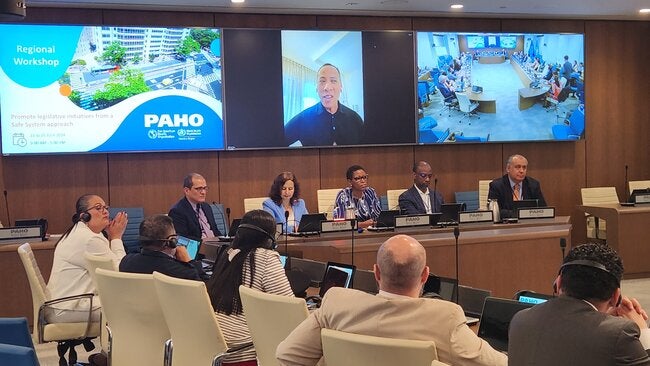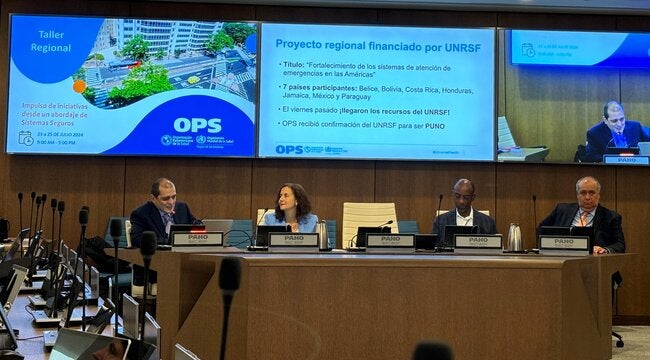
Washington, DC, 31 July 2024 -
The Pan American Health Organization (PAHO) hosted a regional road safety workshop to present the preliminary results of the regional report and launch the Regional Project to Strengthen Emergency Care in the Americas. This project is funded by the United Nations Road Safety Fund (UNRSF) and aims to drive concrete actions in seven countries in the region (Belize, Bolivia, Costa Rica, Honduras, Jamaica, Mexico, and Paraguay).
The meeting was held in Washington D.C. (WDC) from 23 to 25 July, and included the participation of representatives from parliaments, Ministries of Health, Transport and Safety, as well as civil society organizations from 14 countries in the region: Argentina, Belize, Bolivia, Brazil, Colombia, Costa Rica, El Salvador, Ecuador, Guatemala, Honduras, Jamaica, Mexico, Paraguay, and the Dominican Republic. The opening session featured Dr. Rhonda Sealey Thomas, Deputy Director of PAHO, and Dr. Nhan Tran, Head of the WHO Safety and Mobility Unit.
The workshop presented preliminary data from the Regional Road Safety Report, "Saving Lives by Promoting a Safe Systems Approach in the Americas." The report is part of PAHO/WHO's commitment to supporting road safety efforts in the Americas.
Additionally, the workshop focused on how to develop legislative initiatives from a safe systems approach, in sessions facilitated by personnel from WHO, the PAHO Regional Office in WDC, and PAHO/WHO country offices, with invaluable support from representatives of GHAI (Global Health Advocacy Incubator) and GRSP (Global Road Safety Partnership), members of the consortium of the Bloomberg Philanthropies Global Road Safety Initiative.
During the workshop, gaps in implementing the recommendations of the Global Plan for the Decade of Action for Road Safety 2021-2030 in the participating countries were identified, along with the opportunities to advance multi-country road safety initiatives. These initiatives aim to strengthen the implementation of laws and regulations aligned with United Nations legal instruments and best practices (i.e., key risk behaviors, motor vehicle safety standards, and laws adopting WHO standards for effective emergency care). This also involves promoting sustainable internal financing for road safety.
WHO and its Regional Offices received the mandate from Member States to document national, regional, and global progress towards achieving a 50% reduction in road traffic-related deaths and serious injuries by 2030 as part of the implementation of the recommendations of the Global Plan for the Decade of Action for Road Safety 2021-2030.





